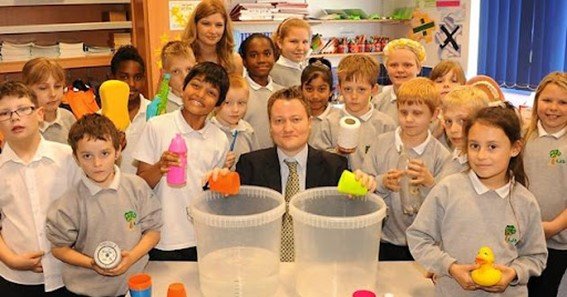Water conservation in school is a vital step toward promoting environmental sustainability and teaching the next generation the importance of preserving our natural resources. Schools serve as an excellent platform to educate children about sustainable water practices, creating lifelong habits that benefit the planet.
Why Is Water Conservation in School Important?
The importance of water conservation in education extends beyond reducing water bills. It helps instill a sense of responsibility in students, teaches them about environmental stewardship, and ensures the availability of water for future generations. Schools play a key role in fostering eco-friendly water habits among students.
Practical Tips for Saving Water in Schools
Adopting small but effective measures can make a significant difference in reducing water waste in schools. Here are some tips for saving water in schools:
- Fix Leaks Immediately
Repairing leaking taps and pipes is one of the simplest ways to save water. - Install Low-Flow Fixtures
Use water-efficient faucets and toilets to minimize water usage. - Use Rainwater Harvesting Systems
Schools can install rainwater harvesting systems to collect and reuse rainwater for non-potable purposes like watering gardens. - Turn Off Taps Properly
Encourage students to turn off taps completely after use to prevent water wastage. - Monitor and Educate
Create awareness campaigns about efficient water use in schools, involving both students and staff.
School Water Conservation Methods
1. Adopt Simple Water-Saving Strategies
Implement simple water-saving strategies for schools like installing sensors on taps or using buckets instead of hoses for cleaning.
2. Encourage Eco-Friendly Water Habits Among Students
Teach children to avoid unnecessary water use and embrace habits like using refillable water bottles instead of disposable ones.
3. Promote Sustainable Practices in Schools
Start initiatives such as water conservation competitions or student-led projects to encourage innovation in saving water.
How Schools Can Reduce Water Waste
Reducing water waste is a crucial aspect of water conservation in school. Activities like watering gardens early in the morning, using native plants that require less water, and ensuring proper maintenance of plumbing systems can significantly lower water consumption.
The Role of Students in Water Conservation
Promoting water awareness among students is essential for success. Schools can integrate water conservation topics into the curriculum, organize workshops, and lead by example through visible conservation efforts. Empowering students with knowledge makes them active participants in saving water.
FAQ
1. Why is water conservation in school important?
Water conservation in schools ensures that resources are used efficiently while teaching students the value of sustainability and responsibility.
2. What are some tips for saving water in schools?
Fixing leaks, installing low-flow fixtures, using rainwater harvesting systems, and educating students are effective ways to save water.
3. How can schools promote eco-friendly water habits for students?
Schools can promote eco-friendly habits by encouraging students to turn off taps, reuse water, and participate in conservation activities.
4. What are simple water-saving strategies for schools?
Strategies include installing sensors on taps, reducing garden watering frequency, and using efficient irrigation systems.
5. How do rainwater harvesting systems benefit schools?
Rainwater harvesting systems collect and store rainwater, which can be used for purposes like irrigation, reducing the demand for freshwater.










